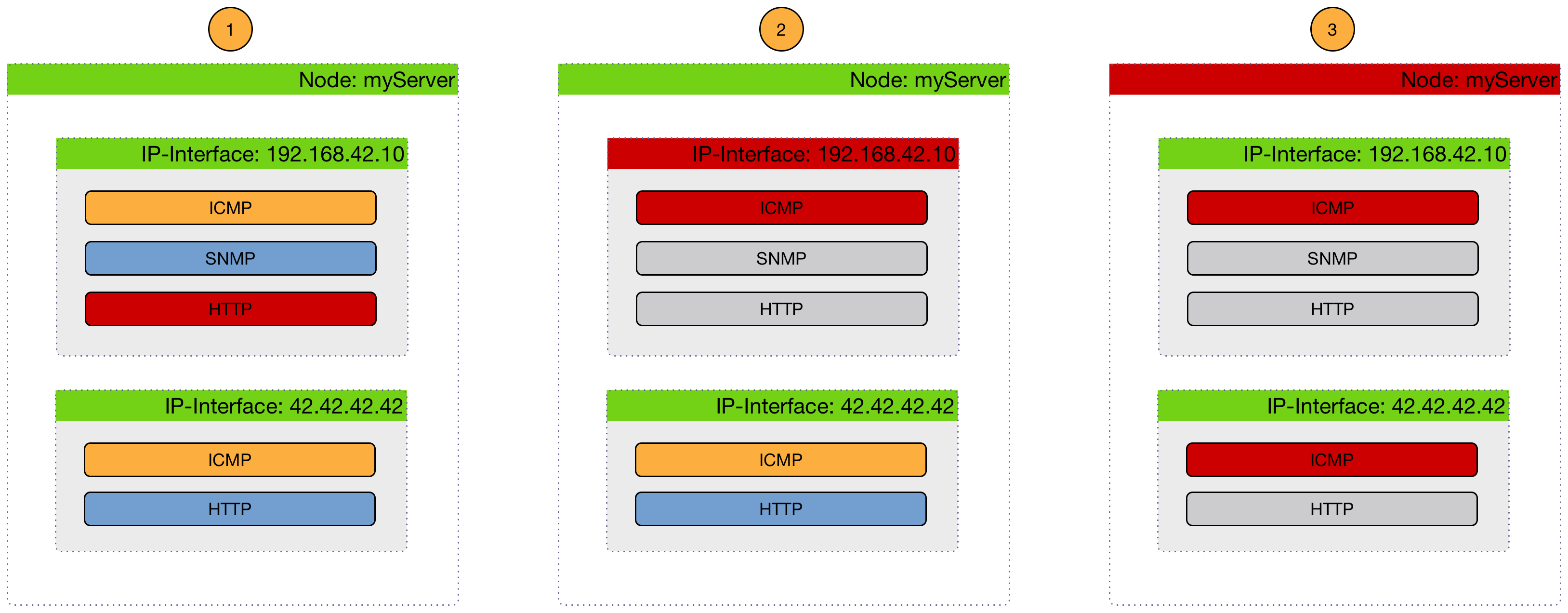Critical Service
Monitoring services on an IP network can be resource expensive, especially in cases where many of these services are not available. When a service is offline, or unreachable, the monitoring system spends most of it’s time waiting for retries and timeouts.
In order to improve efficiency, Meridian deems all services on a interface to be Down if the critical service is down.
Meridian uses ICMP as the critical service by default.
The following image shows how to use critical services to generate these events.

-
(1) Critical services are all
Upon the node and just anodeLostServiceis sent. -
(2) Critical service of one of many IP interface is
DownandinterfaceDownis sent. All other services are not tested and no events are sent, the services are assumed as unreachable. -
(3) All Critical services on the node are
Downand just anodeDownis sent. All other services on the other IP interfaces are not tested and no events are sent, these services are assumed as unreachable.
The Critical Service is used to correlate outages from services to a nodeDown or interfaceDown event.
This is a global configuration option of Pollerd, defined in poller-configuration.xml.
The Meridian default configuration enables this behavior.
<poller-configuration threads="30"
pathOutageEnabled="false"
serviceUnresponsiveEnabled="false">
<node-outage status="on" (1)
pollAllIfNoCriticalServiceDefined="true"> (2)
<critical-service name="ICMP" /> (3)
</node-outage>| 1 | Enable node outage correlation based on a critical service |
| 2 | Optional: In case of nodes without a critical service, this option controls the behavior.
If set to true then all services will be polled.
If set to false then the first service in the package that exists on the node will be polled until service is restored, and then polling will resume for all services. |
| 3 | Define critical service for node outage correlation |